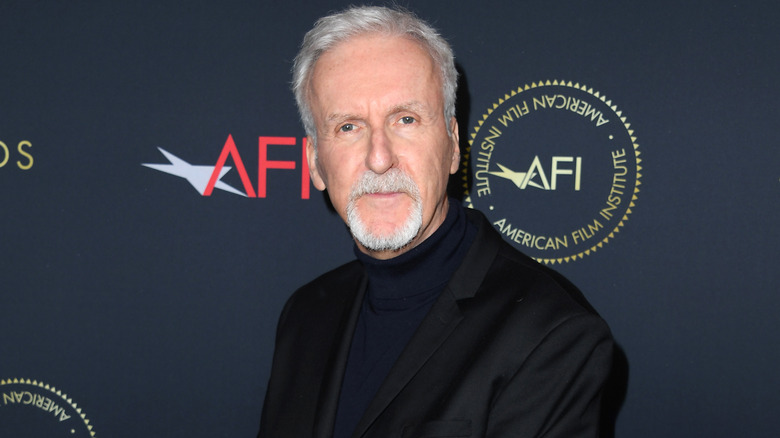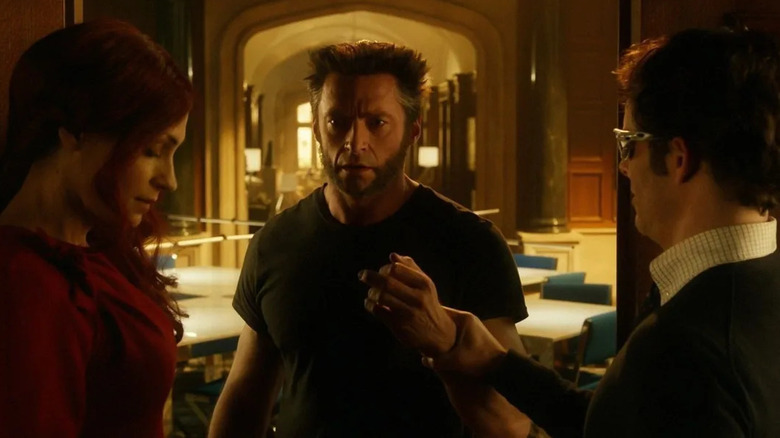James Cameron Doesn't Like Marvel (But He Did Save This X-Men Movie)
James Cameron's skepticism toward the Marvel Cinematic Universe has been well-established at this point. Cameron once said his "Avatar" films were incomparable to the Marvel machine, and he famously told The New York Times he disapproved of many superhero franchise's approach to character.
Despite these criticisms, Cameron has had several encounters with the field of superhero movies himself. He developed a "Spider-Man" movie that never got made and an "X-Men" movie that never happened. Interestingly, "X-Men: Days of Future Past" director Bryan Singer once revealed to IGN in 2016 that Cameron had a small but crucial creative influence on the ending of that movie depicting Wolverine (Hugh Jackman) waking up in an alternate timeline.
"I sent the film to Jim, and at the end of that movie, it was very interesting; when Wolverine woke up, originally, my editor was obsessed with this visual blurriness, so when Wolverine's walking around he's seeing things in kind of a blur," recalled Singer. "So I sent that to Jim, and Jim called me and goes, 'Bryan, that blurry thing made me think that the wool was going to be pulled out from under me, and I was not satisfied. I thought it was lie and that it would fail, and it would all be dark. Then suddenly it was okay.'"
Singer further revealed how he followed Cameron's advice and removed the blur effect from the finished film.
Cameron advised Singer to lean toward a more joyful conclusion
You don't become a filmmaker at James Cameron's level without a keen sense of visual storytelling, and as "X-Men: Days of Future Past" director Bryan Singer recalled, Cameron had some valuable input in why the ending of the movie wasn't quite clicking visually.
"So I pulled the effect, and it was the only note Jim gave me. He gave me no other note. He said, 'Oh, I love the movie. It's going to be great, but please let the audience enjoy the fact that it all turned out okay... in that future.' [Laughs] So I pulled the effect," Singer remembered.
We don't know exactly what Singer's original ending for "Days of Future Past" looked like before Cameron's input, so we don't know for sure how it worked differently than the version we see in the finished product. But, given Cameron's creative track record, it seems a safe bet that his instincts on the matter were correct.

